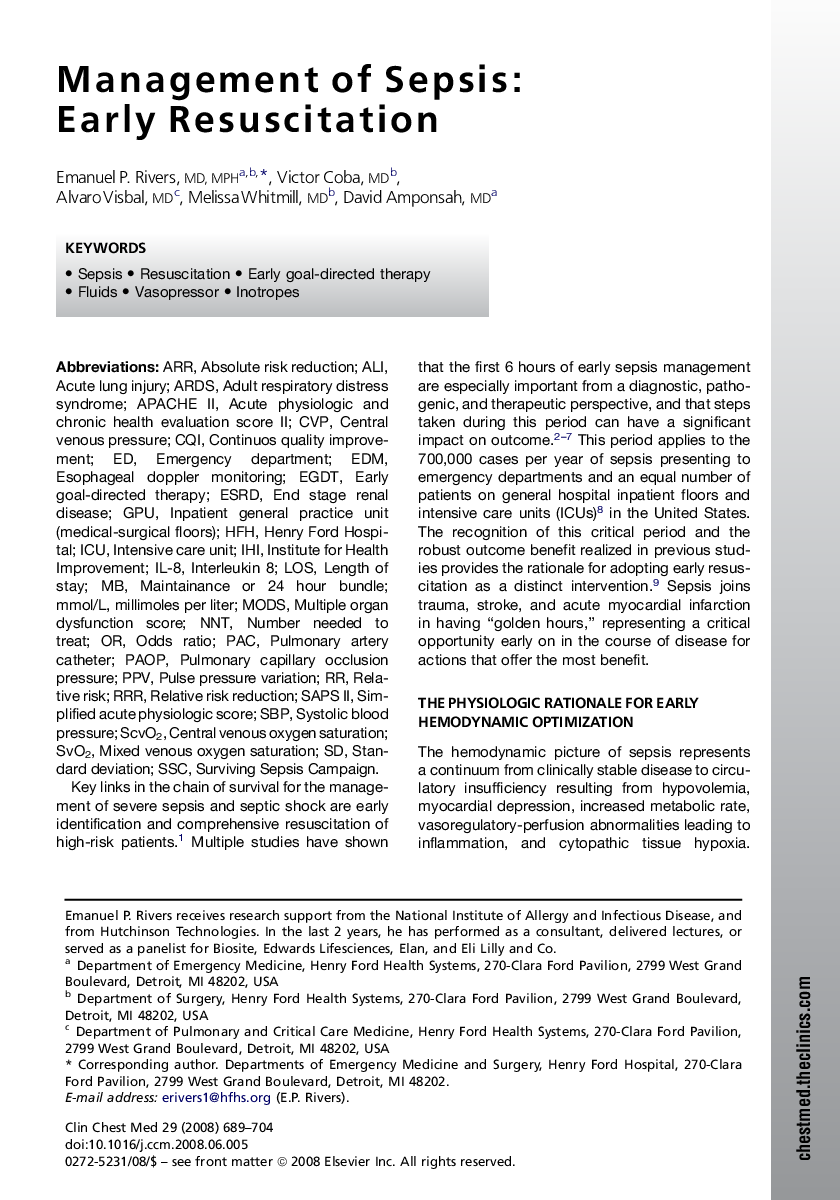| Article ID | Journal | Published Year | Pages | File Type |
|---|---|---|---|---|
| 4207698 | Clinics in Chest Medicine | 2008 | 16 Pages |
Abstract
Key links in the chain of survival for the management of severe sepsis and septic shock are early identification and comprehensive resuscitation of high-risk patients. Multiple studies have shown that the first 6 hours of early sepsis management are especially important from a diagnostic, pathogenic, and therapeutic perspective, and that steps taken during this period can have a significant impact on outcome. The recognition of this critical time period and the robust outcome benefit realized in previous studies provides the rationale for adopting early resuscitation as a distinct intervention. Sepsis joins trauma, stroke, and acute myocardial infarction in having “golden hours,” representing a critical opportunity early on in the course of disease for actions that offer the most benefit.
Keywords
CQINNTSvO2IHIVasopressorIL-8APACHE IIARDSCVPSAPS IIEDMHFHinotropesEGDTPAOPMODSmmol/lesophageal Doppler monitoringScvO2Multiple Organ Dysfunction ScoreRRRSSCSBPPPVARRPACAcute lung injuryResuscitationCentral venous oxygen saturationAlistandard deviationLosInterleukin 8emergency departmentICUintensive care unitESRD یا end stage renal diseasePulse pressure variationRelative riskadult respiratory distress syndromeSepsisnumber needed to treatlength of staysystolic blood pressureCentral venous pressureFluidsmixed venous oxygen saturationend stage renal diseaseodds ratioSimplified acute physiologic scoreearly goal-directed therapyGPUpulmonary artery catheterAbsolute risk reductionrelative risk reductionSurviving Sepsis Campaign
Related Topics
Health Sciences
Medicine and Dentistry
Pulmonary and Respiratory Medicine
Authors
Emanuel P. MD, MPH, Victor MD, Alvaro MD, Melissa MD, David MD,
